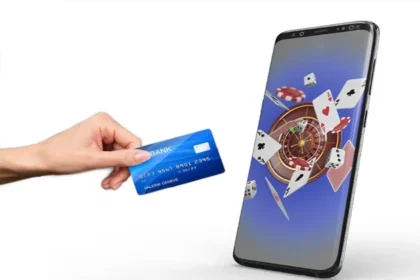The gaming industry has always led the pack in adopting new technology. Now, another wave of innovation is reshaping it: financial technology, or fintech. This shift isn’t, however, just about faster payments. Today, it’s redefining how players interact, how developers earn, and even how digital assets are owned. As gaming and fintech meet, new opportunities for both entertainment and economic growth are created.
Digital Payments and the Rise of Crypto
The first visible impact of fintech in gaming came through digital payments. Not long ago, buying something in a game meant painstakingly entering credit card numbers. Today, players can purchase gaming extras in seconds. Microtransactions have become one of the gaming industry’s most notable revenue streams. They keep free-to-play titles profitable, and they also allow gamers to instantly enhance their experience.
Fintech has made this process seamless. These systems have also made global participation possible. For example, a gamer in Brazil can now purchase the same digital content as a player in Germany without worrying about exchange rates or regional restrictions.
The evolution hasn’t stopped there. Blockchain and cryptocurrencies are opening even more new doors. iGaming platforms like the crypto casino show how far the intersection of gaming and fintech can go. These platforms are powered by blockchain, which is a huge shift from how traditional casinos operate. Players benefit from faster withdrawals, stronger anonymity, and provably fair systems that reduce the risk of manipulation. The appeal, then, lies not only in convenience but also in the trust these kinds of systems create.
Blockchain and True Digital Ownership
Arguably, the most groundbreaking shift brought by fintech is the concept of digital ownership. For years, buying an in-game item meant you could use it, but you never truly owned it. The asset was locked inside a game’s servers and had absolutely no value outside its ecosystem. Blockchain technology has now completely changed that equation.
Non-fungible tokens (NFTs) allow players to own unique and verifiable digital assets. Since NFTs exist on the blockchain, players can sell or trade them freely across borders, giving in-game items real-world value. Some games already allow these assets to move across titles, and this hints at a future where virtual goods may begin to function like investments.
The play-to-earn (P2E) model builds directly on this. Titles such as the fast-growing Axie Infinity reward players with cryptocurrency or NFTs for participating in gameplay. These assets can then be sold or exchanged for fiat currency and ultimately turn gaming into a potential income stream. In some countries, players have relied on P2E as a way to support themselves, especially when job markets are unstable.
Enhanced Security and Fraud Prevention
With money flowing through digital platforms, security has become a top priority. Traditional payment systems have always carried risks of fraud, chargebacks, or identity theft. Fintech has introduced solutions that make gaming safer for its players and developers.
Blockchain itself provides powerful protection due to its decentralized design. Transactions recorded on the blockchain are nearly impossible to alter, so they dramatically lower the chances of fraud. AI and machine learning tools, too, can now scan transaction data in real time, flagging unusual behavior before it even becomes a problem.
Multi-factor authentication and biometric verification have also become common. Players can secure their accounts using fingerprints, face scans, or one-time codes, so it becomes much harder for hackers to gain access. These innovations increase trust in online gaming platforms and encourage players to spend more and engage more freely.
New Monetization Models and Funding Opportunities
Fintech isn’t only changing how money moves inside games. It’s also transforming how games themselves are initially created and then sustained. Independent developers, who before struggled to compete with massive studios, now have new tools at their disposal.
Crowdfunding has long given players the chance to support projects they believe in, but integrating cryptocurrencies and NFTs has taken this to a whole other level. Backers can now receive unique in-game assets or blockchain-based tokens as rewards for their support, thus giving them something tangible in return for their investment.
The rise of decentralized autonomous organizations (DAOs) in gaming is another transformative new system. These community-run entities let players and investors vote on how development funds are spent or what direction a game should take. DAOs distribute power more evenly and give gamers a say in the shaping of the titles they love.
The Future: Interoperability and the Metaverse
Looking ahead, the marriage of fintech and gaming is laying the groundwork for the metaverse: a vast, interconnected digital environment where players can move fluidly between worlds. In this vision, identities, currencies, and digital assets are portable. A player could buy a sword in one game and use it in another, or purchase a piece of virtual land that holds value across multiple platforms.
Fintech will for sure be what powers this system behind the scenes. Cryptocurrencies are likely to become the default currency of the metaverse, enabling frictionless cross-border transactions. NFTs will represent everything from clothing for avatars to deeds for virtual property. Smart contracts will handle trades automatically and ensure fair exchanges without the need for intermediaries.
The implications are significant. Players won’t just consume content. Rather, they’ll own part of the digital world itself. Developers will now have new revenue streams like marketplace commissions and asset royalties. Entire economies will emerge inside virtual spaces and the lines between digital and physical life will continue to blur.
A Redefined Gaming Landscape
Fintech’s influence on gaming goes well beyond faster payments. It has introduced real digital ownership and new ways for players to earn. Safer, borderless economies are flourishing. For developers, this then means fresh funding options and stronger ties to their communities.
The shift is only beginning, but the direction is clear. From crypto casinos to play-to-earn ecosystems and the emerging metaverse, fintech is reshaping how people play as well as redefining what gaming can be.










